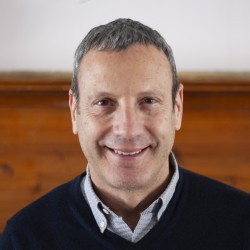In April in the German city of Koblenz, the world’s first war crimes trial of a senior ranking Syrian soldier got under way. The accused are Anwar Raslan, a former colonel in the Syrian army, and his subordinate, Eyad al-Gharib. The 100-page long indictment, which was read out in court, included a litany of horrors allegedly perpetrated against political enemies of the Assad Regime held at the Damascus base of Military Intelligence’s Branch 251. Also in April, an Iraqi, known as Taha Al-J, went on trial in Frankfurt, accused of participating in an Islamic State-led campaign to exterminate the Yazidi religious minority, including the brutal killing of a 5-year-old girl.
It is no surprise that both these trials are taking place in Germany. Germany has become a world leader in the pursuit of international justice through universal jurisdiction. It is one of a few countries actively initiating investigations against global war criminals, without waiting for NGOs or civil society actors to prompt them or provide the necessary evidence. More than half of the known criminal proceedings brought against alleged Syrian war criminals have been launched by German prosecutors. The country has pursued cases against nearly 40 Syrian suspects, both state and non-state actors.
However, Germany was not always a champion at combating impunity. Indeed, German law even prohibited murder prosecutions of Nazi-era perpetrators unless it could be demonstrated that they were directly linked to specific murders. This bizarre and shameful approach to criminal law allowed most Nazi suspects to go to their graves without having to face justice. Only in the 2009 case against the notorious Nazi guard, John Demjanjuk, did a German court finally accept that those who knowingly participated in the machinery of death should face justice, even in the absence of evidence of direct involvement in a particular killing.
Germany has one of the most expansive approaches to universal jurisdiction anywhere in the world. It employs a “pure” universal jurisdiction, which requires no direct link between Germany and the suspect, or the country in which the crime took place. German prosecutors may investigate serious international crimes even when suspects are not present in Germany. Where a case does have a link to Germany, such as a German victim, prosecutors are under a mandatory duty to investigate, but they have a discretion not to investigate when there is no connection to Germany.
The creation of a specialized war crimes unit at the federal prosecutor’s office in 2010, and the allocation of more resources to the unit, greatly facilitated Germany’s capacity to pursue universal jurisdiction cases. The innovative device of structural investigations has also enhanced the ability of German prosecutors to pursue these crimes. Structural investigations are not directed against specific persons but rather focus on the structures and context within which the crimes were perpetrated. This has facilitated the ability of prosecutors to identify suspects and to swiftly seek extradition when suspects are known to be in foreign territories, or to quickly act when suspects enter Germany. In 2011 prosecutors launched a structural investigation into state sponsored war crimes in Syria; and in 2014, a similar investigation was initiated into crimes committed against the Yazidi minority in Syria and Iraq. The paths to the trials of Anwar Raslan, Eyad al-Gharib, and Taha Al-J commenced with these structural investigations.
PHOTO: The Fountain of Justice is situated at the center of Römerberg Square in Frankfurt, Germany. (Jorge Royan/Wikimedia Commons)

